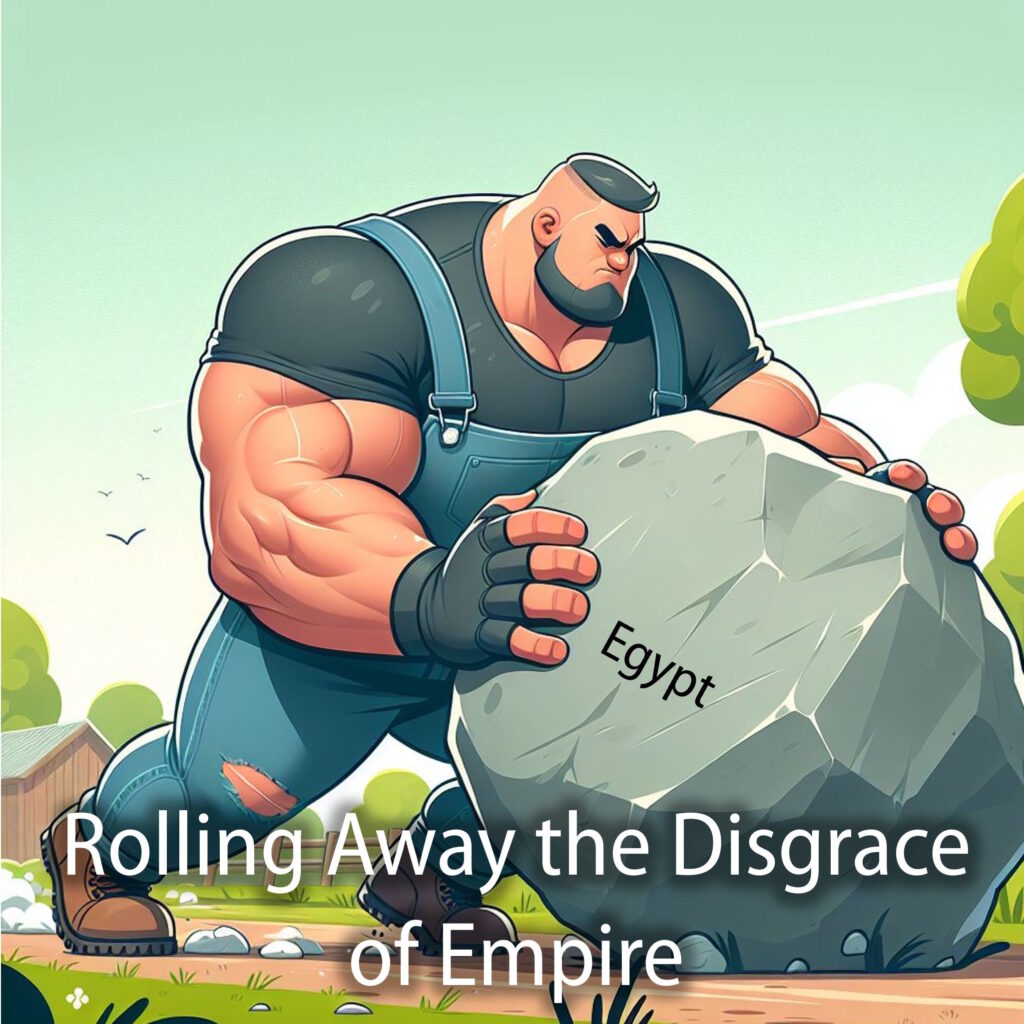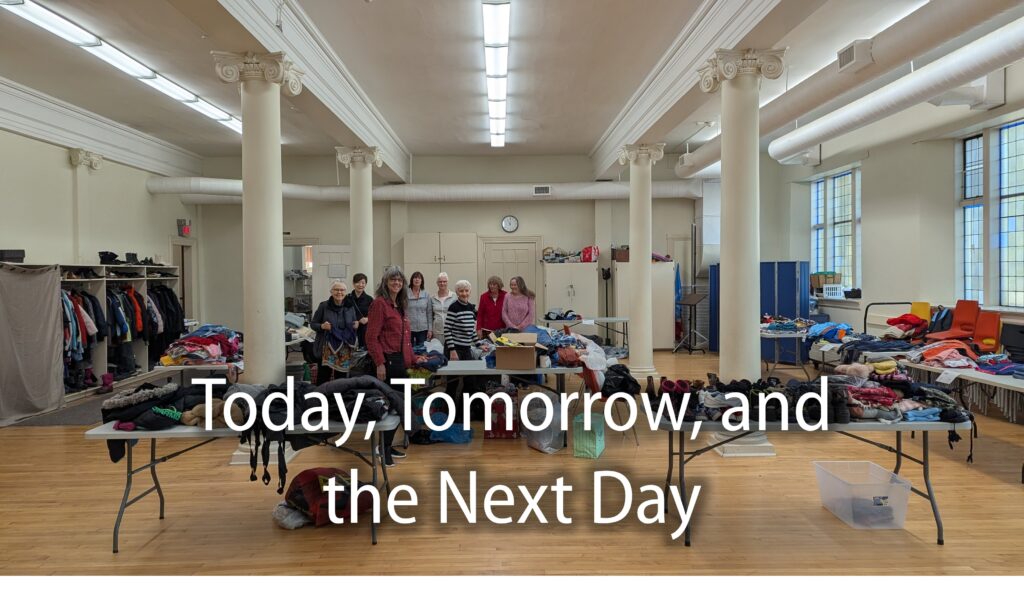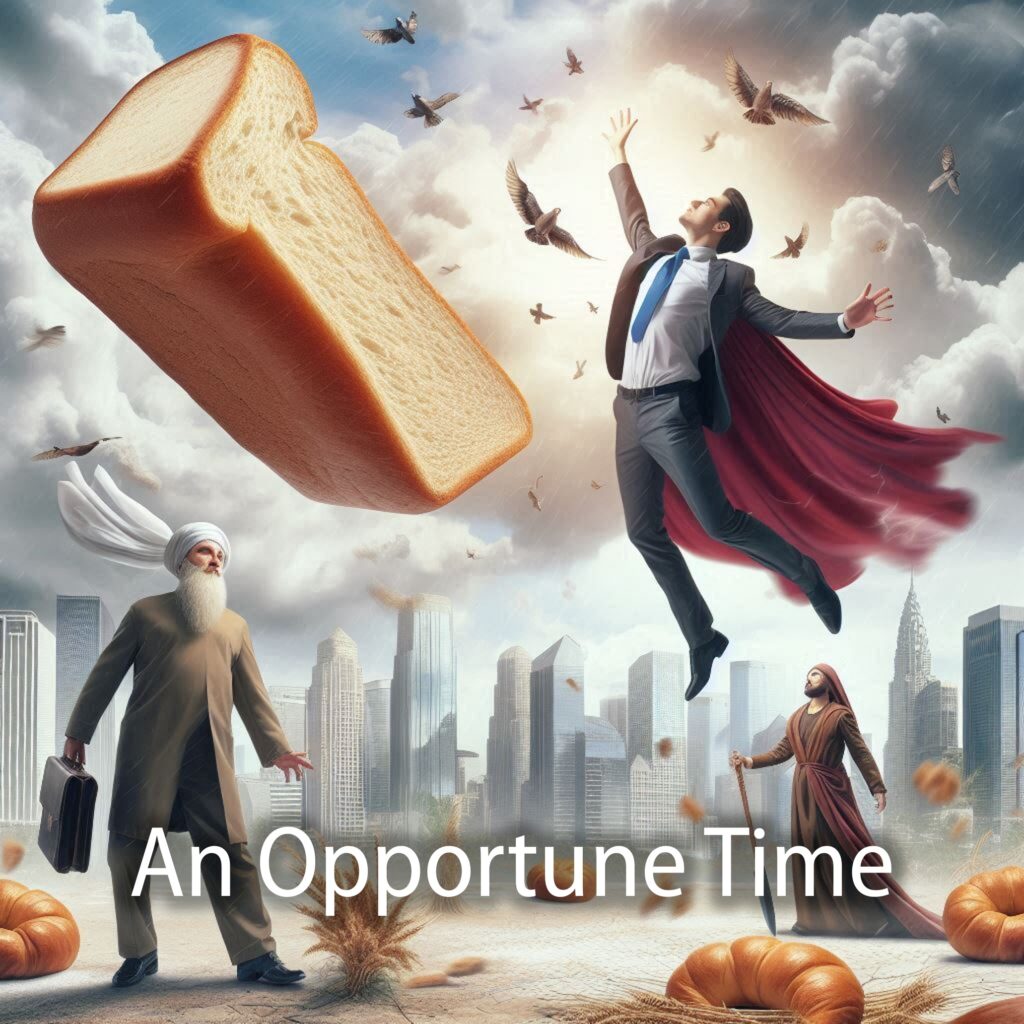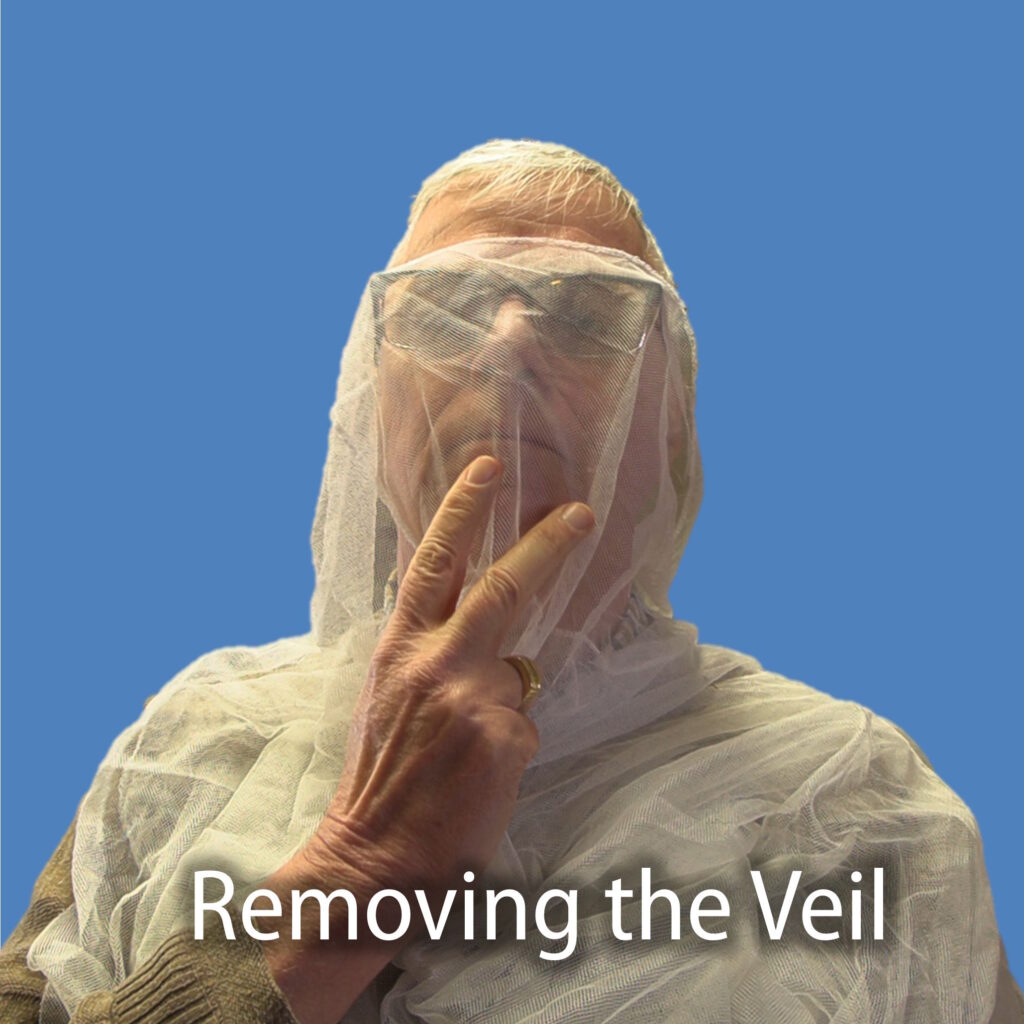Hespeler, April 6, 2025 © Scott McAndless – Fifth Sunday in Lent
Isaiah 43:16-21, Psalm 126, Philippians 3:4b-14, John 12:1-8
Have you heard the story about the time when Jesus was eating supper at somebody’s house when, all of a sudden, a woman came in and began to anoint Jesus? But then all of the men who were present began to criticize her harshly for doing that. But then Jesus began to defend her. In fact, Jesus defended her so strongly that he suggested that she might be better than any of them. At least he suggested that she had done what they should have done but had failed to do.
Of course you know that story – or at least you do if you are at all familiar with the gospels. That story is told in each of the four gospels in our New Testament.
Or is it?
Here is what you may not have noticed if you haven’t studied the gospels in depth. Yes, that story is told in each of the gospels, but there are details in those tellings that actually make them so distinct that they cannot be the same story.
In Simon’s House
Let me show you what I mean. The story told in Matthew and Mark is virtually the same – as in word-for-word the same for the most part – so we’ll count that as one story.
This story takes place in “Bethany in the house of Simon the leper,” where as Jesus “sat at the table, a woman came with an alabaster jar of very costly ointment of nard, and she broke open the jar and poured the ointment on his head.” (Mark 14:3) The woman is unnamed and the people who are present criticize her for wasting the money when it could have been given to the poor.
The details of this story are important. You anoint kings by pouring oil on their heads and so she sees herself as anointing Jesus as a king. Also the fact that she is unnamed is significant as Jesus calls attention to that when he says that “what she has done will be told in remembrance of her.” It is also significant that she does this just before Jesus is killed, as he says, “she has anointed my body beforehand for its burial.”
In the Pharisee’s House
But the story in the Gospel of Luke has different details. It takes place much earlier in the ministry of Jesus and in the home of a Pharisee where Jesus is reclining (not sitting) to eat. The woman, still unnamed, anoints Jesus with the same alabaster bottle of ointment, but she anoints his feet, not his head, and only does so after she washes them with her tears and dries them with her hair.
The details make the story quite different. This is not a royal anointing; you anoint the feet of someone as an act of penitence. And the men present criticize her, not because of the expense, but because she is so sinful and should not be touching someone as holy as Jesus. And Jesus praises her and forgives her because she has washed his feet when his hosts have failed to do so.
In Lazarus’ House
And then we come to this story that we read this morning from the Gospel of John. We are back in Bethany and just before Jesus’ arrest, but we’re in a completely different house – the house of Lazarus who Jesus just raised from the dead a chapter ago. And this time, the woman who is doing the anointing, far from being unknown, is a woman who we have already encountered in this book. She is Mary, the sister of Lazarus, the same one who told Jesus off for not coming sooner when her brother was dead.
So, what is going on here? The stories echo each other so perfectly, but the essential details mean that they cannot be the same story of the same events. I see two possible explanations.
Understanding Each Story
It could be that this was something that just happened to Jesus all the time – as in, there were constantly various women who were coming up to Jesus with alabaster jars of costly ointment. That seems a bit odd, but I suppose it is possible.
The other possibility is that these three stories are all based on one original incident, but what has happened is that each of the gospel writers has taken that story and intentionally told it in a slightly different way.
But they would have done this for a reason. You don’t go adapting a sacred story like this one without trying to use it to get your particular message across. Each of these gospel writers, in other words, was trying to use this story to teach us different things about who Jesus was and why he had come.
And if that is what is going on here – and I think that it is – then our job as readers is clear, isn’t it? We need to do our best to understand what each author is trying to get across to us by the way that each story is told. So, let’s it take a deep dive into the story told in the Gospel of John, because there are some really interesting things going on in there. In fact, let us put ourselves into the place of Mary as she prepares to greet her extraordinary guest.
When Lazarus Had Died
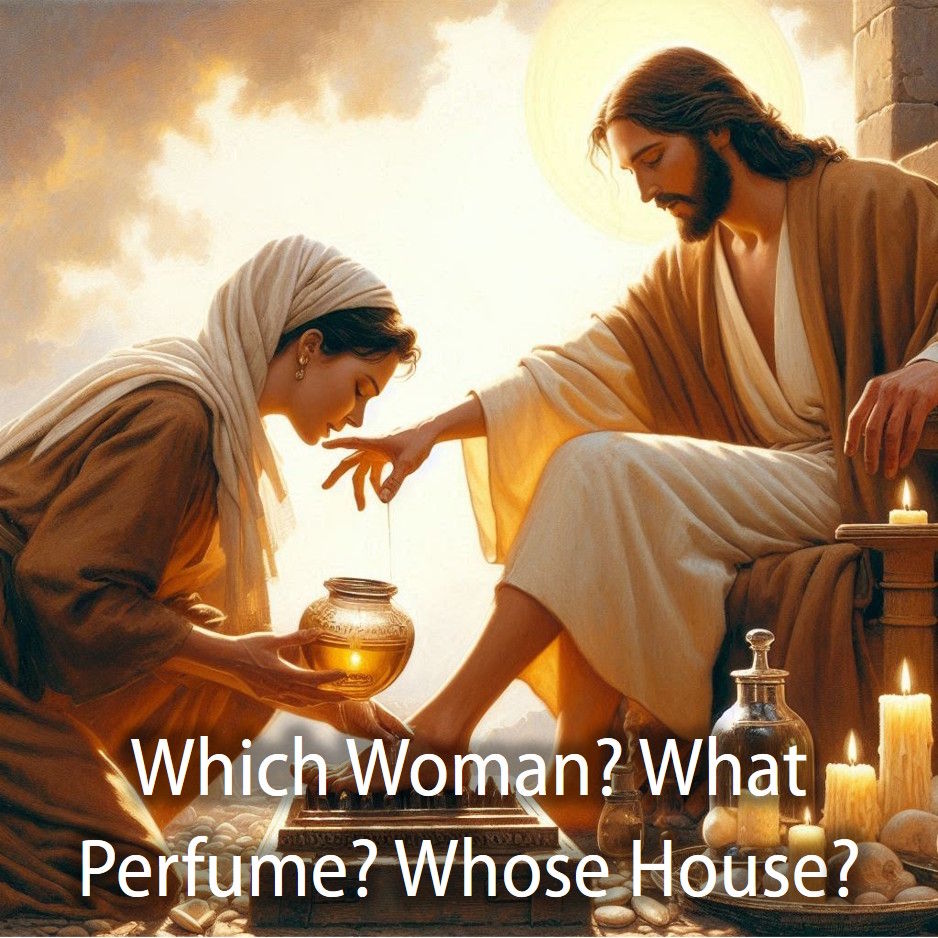
When Mary’s brother told her that he had invited Jesus to dinner, her mind immediately went back to the last time she had seen him. It had been at a horrible moment, when Lazarus has just died.
She had just finished watching and feeling utterly helpless as her beloved brother weakened and sickened over several days. Lazarus was not only somebody who she loved dearly. He was also the only source of financial security for his unmarried sisters. And here she was, there was nothing she could do to save him. And then she lost him. He was gone.
Four days after that, Jesus had come. She knew his reputation as a healer. She knew that, if he had come sooner, none of this would have happened. But now, here he was. Too little, too late.
She should have been furious but, honestly, her grief was so great that it was like she could hardly harness the strength to express any emotion whatsoever. When her sister Martha went out to greet Jesus, Mary just stayed back in the house. She wasn’t weeping; she wasn’t doing anything yet. She was just lost.
Martha and Mary
Martha had done all of the heavy lifting that day. She had been the one to confront Jesus over his tardiness. She was the one who spoke to him of her hope of a resurrection of the dead on the last day, but that that seemed far too remote to give them any comfort now. She was the one to stand there perplexed as Jesus cryptically said, “I am the resurrection and the life.”
But Mary, when she was summoned and had to force herself to get up and go out to see him, all she had been able to say was, “Lord, if you had been here, my brother would not have died.” And then, finally, with those words, the floodgates broke, and she began to weep like she had never wept in her life.
And then she saw it. Through the veil of her own tears, she looked up to see that he was weeping too. And no, it was not just a few tears tumbling down his cheeks. It was not just a moment’s weakness. He had completely taken onto himself the sorrow that had consumed her entirely in that moment.
For Mary, that moment when he wept as she wept had meant everything. The rest of what happened that day – the opening of the tomb and even when her brother had come forth again – that was just like a dream that flowed from that moment.
Preparing for the Guest
She had not said another word to Jesus since. And when she heard of her brother’s invitation, she knew that she would now finally have her opportunity. She, unlike her sister Martha, was a woman of few words. So, she decided to show him what was in her heart.
She spoke to Martha and asked her if she would take on the work in the kitchen. She would offer hospitality in the form of food. But Mary would take on treating him as the guest of honour that he was.
Martha was expecting, no doubt, that her sister would carry out the traditional duty of washing the visitor’s feet. Mary had a little something extra in mind.
Something Left Over
Remember that, just weeks ago, the sisters had carried out the terrible duty of preparing their own brother’s body for burial. This was something that had always been women’s work and they had done it with extreme care. They had used nothing but the best myrrh and aloes and costly perfumes. But, when they had done, there had been one alabaster jar of precious nard left over. Unbeknownst to her sister, Mary had kept it aside.
She probably should have sold it. It would have fetched 300 denarii – almost a year’s wages – or more. She could have used that kind of money to feed about seven and a half thousand hungry people. (At least the calculus at the feeding of the five thousand was that 25 denarii could feed a thousand).
But something made her feel as if she needed to keep it for Jesus. She was no fool. She could see the opposition rising against him. And she could also see that he was not going to back down just because things were getting dangerous.
Preparing His Body
Women were used to navigating dangerous situations. That was just what life was like for them. She knew just how likely it was that they were going to take him. And if they took him, there was no way that they were going to let him live.
And now, as she prepared to welcome Jesus into their home, she thought that the time had finally come to prepare his body for the now inevitable destruction that awaited it. And so, she took that jar of precious ointment and broke it open over his feet as he lay down upon the dining couch.
What was she doing in her mind? She was certainly acting as the hostess in her brother’s house by washing his feet. But she was also anointing him, not as a king or a priest. For that she would have anointed his head. No, she was anointing him as one already dead and ready for burial. She unbound her hair as a sign of one in mourning and used that hair to wipe the ointment onto his feet.
The Disciples’ Complaint
When they complained to her about the cost of the ointment and what else she could have done with it, it was not as if she didn’t already know. What, did they really think that women couldn’t do math? Well, yeah, actually that’s probably exactly what they thought. But it wasn’t that.
It was that they weren’t all that inclined to spend money to feed the hungry. Hadn’t they even said as much when Jesus had wanted them to feed 5000? They said that it would be ridiculous to spend that kind of money.
No, she was pretty sure that they raised that point as a smokescreen. They wanted something to distract themselves from the realization that she was coming to terms with – that they were about to lose him.
At least, she was pretty sure that was what was happening for most of them. But as for the one called Iscariot, she had good reason to mistrust his motives. Some women just know when they are dealing with a man who is untrustworthy.
Mashing Stories Together
It is an unfortunate habit we have of taking the stories of the Gospels and just sort of mashing the ones that are similar together in our minds. Remember that each gospel writer was telling his own story. Remember that they did not just write these books to report about what had happened. If that was all that these books were for, one would have been enough.
No, each gospel writer was trying to get across the important truths about Jesus that he had discovered. And each did that in the way that they adapted and told the stories. When we harmonize those stories, reducing them to the lowest common denominator so that they are all the same, we run the risk of losing sight of the very important truths that these writers were trying to give us.
